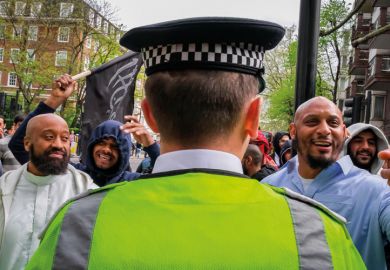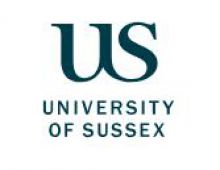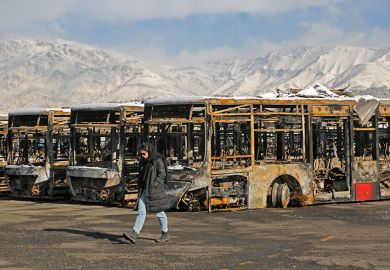The government’s own enforcement of anti-terror strategy Prevent is responsible for a perceived “chilling” of free speech on university campuses, the former leader of the House of Lords has warned.
Baroness Amos, director of Soas, University of London, appeared in front of Parliament’s Human Rights Select Committee alongside Tim O’Shea, vice-chancellor of the University of Edinburgh, Adam Tickell, vice-chancellor of the University of Sussex, and student union representatives.
Asked whether procedures put in place to vet external speakers at university events had compromised duties towards ensuring freedom of speech on campus, Baroness Amos said that there had been increasing levels of “confusion and contradiction” on the matter as a result of Prevent.
“I would not say there’s been a ‘chilling effect’ [on free speech] at Soas in terms of who is invited or who gets to speak,” she told committee members. “But…you can’t speak about free speech without looking at the connection to other issues, for example, Prevent.”
Introduced in 2006 and subsequently widened in 2011, Prevent places responsibility on schools, universities and colleges to challenge any unusual or potentially dangerous behaviour that could be a sign of radicalisation or underlying terrorism. Giving a platform to external speakers who have extreme views lies in contradiction with that, Baroness Amos said.
“Given the nature of our student body, and given the concerns about an overall political environment in which – certainly our students and a lot of our faculty feel – there is a squeezing of the ability to be open, diverse and inclusive, for example, how we treat refugees, our visa policy, how Prevent is being implemented.
“All these things are having an impact on how young people, particularly young people of colour, or who are Muslim, actually feel in terms of being under additional scrutiny. So I think the ‘chilling effect’ is more about a perception but also a reality of how those people are living in society.”
Professor Tickell also disagreed that there had been any reduction of free speech at his own university, adding that Sussex had hosted far-right politicians and would “continue to welcome anybody who is prepared to come and speak, within the law”.
“More generally, I think there’s something of a generic misunderstanding about the nature of what is happening in [the] university contingent…things which are not relevant to the discussion of free speech are whipped up to create a sense of moral panic,” he said, giving reference to unfounded criticisms that universities had been known to remove certain offensive book titles from library shelves.
The debate follows warning from the former universities minister Jo Johnson that institutions found to be restricting of free speech would face penalties delivered by the newly created Office for Students, potentially including fines.
Register to continue
Why register?
- Registration is free and only takes a moment
- Once registered, you can read 3 articles a month
- Sign up for our newsletter
Subscribe
Or subscribe for unlimited access to:
- Unlimited access to news, views, insights & reviews
- Digital editions
- Digital access to THE’s university and college rankings analysis
Already registered or a current subscriber?










